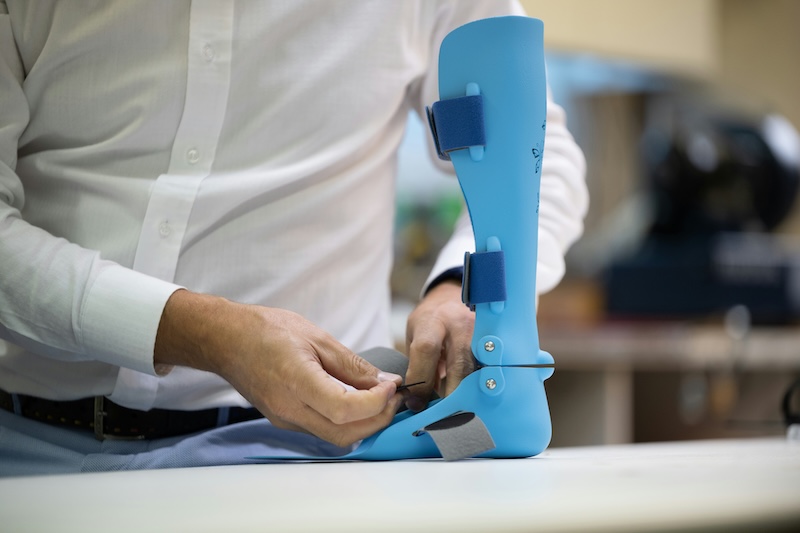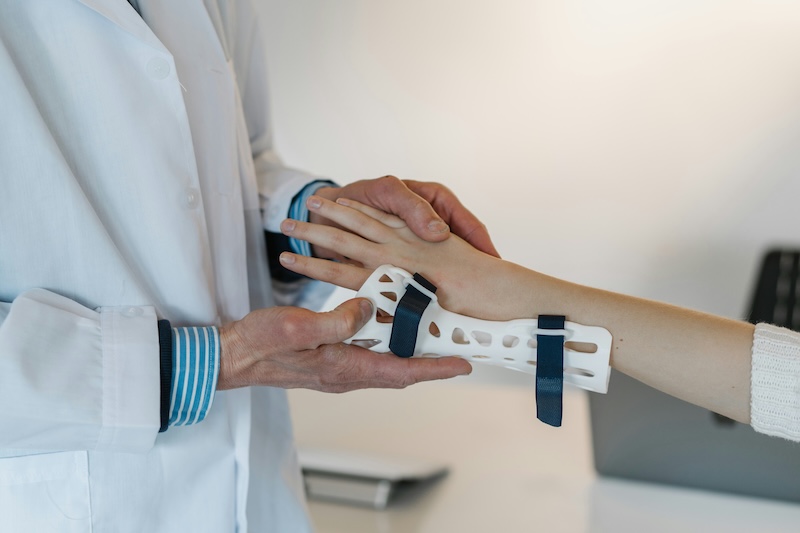Introduction: Titanium powder is revolutionizing regenerative medicine.
Regenerative medicine, which focuses on repairing or replacing damaged tissues and organs, relies heavily on innovative technologies to develop solutions that are both functional and biocompatible. One of the most groundbreaking materials contributing to this field is titanium powder. Its use in creating customized medical solutions, such as implants, scaffolds, and prosthetics, is transforming how medical professionals approach patient-specific care. But how exactly is titanium powder enabling these custom solutions in regenerative medicine?
Titanium powder offers a versatile platform for creating patient-specific implants and scaffolds, driving innovation in regenerative medicine by improving the compatibility and functionality of medical treatments.
Let’s explore how titanium powder is used to create tailored solutions in regenerative medicine, revolutionizing how patients receive treatment.

How Does Titanium Powder Facilitate the Creation of Customized Implants?
Titanium is renowned for its biocompatibility, strength, and corrosion resistance, making it an ideal material for use in medical implants. The introduction of titanium powder into additive manufacturing (3D printing) processes has taken the ability to produce customized implants to the next level.
• 3D Printing Precision: Titanium powder can be used in 3D printing technologies, allowing for the creation of highly detailed, patient-specific implants. These implants are designed based on a patient’s unique anatomy, ensuring a precise fit and minimizing the risk of complications that may arise from poorly fitting standard implants.
• Complex Geometries: Titanium powder enables the creation of implants with complex geometries that would be difficult or impossible to achieve using traditional manufacturing methods. These can include porous structures that promote better integration with bone tissue, enhancing healing and reducing the risk of implant rejection.
By using titanium powder in 3D printing, medical professionals can produce implants that are specifically designed for each patient’s needs, enhancing the success of regenerative procedures.
How Does Titanium Powder Support the Development of Tissue Scaffolds?
Tissue scaffolds are essential in regenerative medicine, as they provide the structure needed for new tissue growth. Titanium powder, when used in combination with additive manufacturing techniques, allows for the creation of scaffolds that closely mimic the mechanical properties of natural tissues.
• Porosity and Biocompatibility: Titanium powder can be processed into scaffolds with controlled porosity, which is crucial for promoting cell growth and nutrient exchange. The porous structure encourages tissue infiltration, helping to regenerate damaged tissues more effectively.
• Customizable Properties: The powder’s characteristics, such as grain size and density, can be customized to suit the specific needs of different tissues. For example, bone tissue scaffolds may require greater strength and load-bearing capacity, while soft tissue scaffolds may need greater flexibility.
Titanium powder enables the creation of highly functional scaffolds that promote tissue regeneration and integration, making it a vital tool in advancing regenerative medicine.
What Role Does Titanium Powder Play in Bone Regeneration?
Titanium has long been a favored material for bone implants due to its excellent strength-to-weight ratio and compatibility with bone tissue. Titanium powder is enabling even more advanced solutions in bone regeneration, particularly when used in 3D printing and porous structures.
• Bone-Implant Integration: One of the challenges in bone regeneration is ensuring that implants integrate effectively with the surrounding bone tissue. The porous nature of titanium powder-based implants allows for better osseointegration—where the bone grows into the implant, ensuring a stable bond and improving long-term success.
• Customized Bone Reconstruction: For patients with severe bone loss or deformities, titanium powder enables the creation of highly customized bone implants. These implants can be designed to fit the exact contours of the patient’s bone structure, promoting faster healing and reducing the need for follow-up surgeries.
Titanium powder enhances the effectiveness of bone regeneration treatments by enabling the creation of custom implants that integrate seamlessly with natural bone tissue.
How Is Titanium Powder Enhancing Prosthetics for Regenerative Medicine?
Regenerative medicine is not limited to the growth of tissue but also extends to the development of prosthetics that can improve patients’ quality of life. Titanium powder is increasingly used in the production of prosthetic devices, offering benefits that traditional materials could not match.
• Lightweight and Strong: Prosthetics made from titanium powder offer the ideal balance of strength and weight. This allows for the creation of durable, functional prosthetic limbs that do not place excessive strain on the patient’s remaining tissues.
• Patient-Specific Design: Just as with implants, titanium powder enables the customization of prosthetic devices to the patient’s unique anatomy. Whether it’s a limb prosthetic or a facial implant, titanium powder allows for a level of precision and comfort that enhances overall usability and effectiveness.
Titanium powder allows for the creation of highly personalized, durable, and functional prosthetic devices, advancing the field of regenerative medicine and improving patient outcomes.

How Does Titanium Powder Contribute to Minimizing Rejection and Complications in Medical Solutions?
One of the primary concerns in regenerative medicine is the risk of implant rejection or complications arising from the use of foreign materials. Titanium is known for its excellent biocompatibility, which is why it is favored for use in medical applications. The properties of titanium powder further enhance this advantage.
• Reduced Risk of Infection: Titanium’s resistance to corrosion and its ability to form a natural oxide layer means it is less likely to harbor bacteria or other pathogens. This reduces the risk of infection and complications following surgery.
• Enhanced Integration with Tissue: The customizable structure of titanium powder allows for the creation of implants and scaffolds that more closely match the mechanical properties of natural tissue. This improves the chances of successful integration and reduces the risk of rejection.
Titanium powder’s biocompatibility, combined with its resistance to infection and corrosion, makes it an ideal choice for medical solutions that require minimal complications.
How Is Titanium Powder Being Used in the Development of Personalized Medical Devices?
Personalized medicine is the future of healthcare, and titanium powder is at the forefront of this revolution. By enabling the production of tailor-made medical devices, titanium powder allows for solutions that are highly specific to each patient’s condition and anatomy.
• Tailored Orthopedic Implants: For patients with unique anatomical conditions, such as congenital deformities or injuries, titanium powder allows for the creation of orthopedic implants that are customized to fit the patient’s body, improving the success rate of surgeries and reducing recovery time.
• Dental and Craniofacial Implants: Titanium powder is used to create personalized dental implants and craniofacial prosthetics that perfectly align with a patient’s unique features, improving both function and aesthetics.
Titanium powder is enabling personalized medicine by allowing the production of custom implants and medical devices, improving the precision and success of treatments.
Claim: Titanium Powder is Revolutionizing Regenerative Medicine by Enabling Custom Solutions
Titanium powder is revolutionizing the field of regenerative medicine by offering a versatile and powerful material for creating custom implants, scaffolds, and prosthetics. Its use in 3D printing and additive manufacturing allows for personalized solutions that enhance patient outcomes, reduce complications, and improve the overall effectiveness of regenerative treatments.
Conclusion: Titanium Powder is Shaping the Future of Personalized Regenerative Medicine
From my perspective, titanium powder is playing a critical role in advancing regenerative medicine by enabling the creation of highly customized, biocompatible, and durable medical solutions. By offering precise control over material properties, titanium powder is allowing for the production of implants, scaffolds, and prosthetics tailored to individual patients, thus improving treatment efficacy and outcomes. As regenerative medicine continues to evolve, I believe that titanium powder will remain a key player in shaping the future of personalized healthcare.







One Response